Following graduation, our alumni have pursued a range of interesting and varied careers. Learn about some of the paths our graduates have followed.
During your degree, you will acquire and refine an array of skills which are highly coveted by employers, such as sophisticated communication and writing skills, the ability to conduct independent research and critically analyse complex forms of evidence and information, and engage flexibly and creatively with different ideas and cultures.
At the Department of Greek and Latin we liaise with the UCL Careers Office to provide students with opportunities for networking with former alumni (our annual Alumni Careers Forum) and for one-on-one careers advice.
Graduates of the Department of Greek and Latin continue to forge successful careers across a wide range of different fields, from the 'traditional' sectors of education, law, the civil service and arts and heritage to the fast-changing worlds of the media, finance and technology.
Here are some testimonials from alumni:
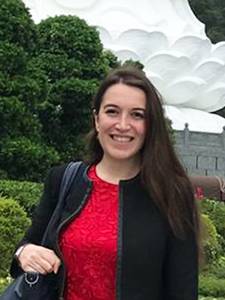 Rhiannon Alban–Davies
Rhiannon Alban–Davies

Classics 2009-12
Fine Art & Jewellery Insurance Broker at Willis Towers Watson, Hong Kong
I still remember starting my first day at UCL at the Latin & Greek Department. I couldn’t believe that I had actually “made it” and I deliberated over the various lecture choices that were on offer. The breadth of subjects meant that I could take my degree in whatever direction I wanted to, whether that was language, philosophy, history or culture, and I explored a mixture of these fields throughout my studies.
Soon after graduating at UCL, I started my Master’s Degree in Intelligence and International Security at the War Studies Department at King’s College London. I had initially thought that the switch to a completely different subject at Master’s level would be a huge learning curve. However, I soon realized that the skills I had learnt during my Classics degree, such as having the ability to research, collate and analyze materials and to critically evaluate resources to formulate arguments, were invaluable and I just had to apply them in a different way. Many of my classmates at UCL who went on to do different degrees such as law, marketing and finance said the same thing.
I have consistently relied on those same skills as I have progressed through my career in the insurance industry. I try to take the same approach to reviewing an insurance policy as I would a passage in Latin – you must be aware of the detail and intricacy of the wording just as much as you must understand the context, culture and history in which it is written.
I would have never have imagined that 10 years after starting at UCL I would be working in Hong Kong. A large part of my role now involves working with museums, galleries and private collections analyzing their risks and devising and negotiating insurance policies. I would be lying if I didn’t admit that I get particularly excited if the collection happens to involve some Ancient Roman or Greek artefacts. My degree in Classics may not have at the time seemed like it would lead to my job in Asia, but I know that any skills and strengths I have developed through my career took root during my studies at UCL.
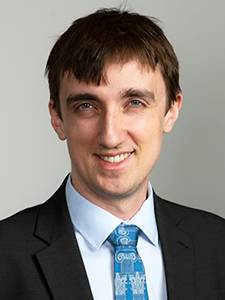 Asa Bennett
Asa Bennett

Classics 2008-10
Journalist at The Daily Telegraph
I studied Classics at University College London from 2008-2011, and greatly enjoyed my lessons on philosophy, satire and – of course – Latin and Greek epic poetry. Since graduating, I went on to do a masters in political journalism down the road at City University, and then embark on a career as a political journalist which has led me to work now at the Daily Telegraph writing about Brexit. Amid the political mayhem, I’ve been helped enormously by my Classical learning to focus my argument when writing and to think critically about the issues. I have been inspired by my Classics BA to write my first book - Romanifesto – looking at the Romanisation of modern politics, and what we can learn from figures like Cicero, Caesar and Boudicca – which is out in all good bookshops.
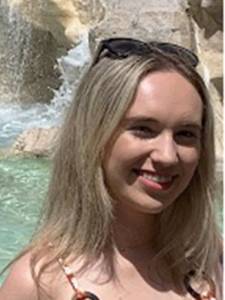 Charlotte Dale
Charlotte Dale

Classics 2015-18
Currently on the Civil Service Fast Stream, Reward Projects Policy Manager at the Ministry of Justice
During my time at UCL, I was able to study the Classical world from a range of different angles – through Greek and Latin language and literature, ancient history, politics, religion and art, to name but a few. By its nature, Classics is an interdisciplinary degree which has proved to be invaluable beyond university due to its diversity and flexibility. Classics allows you to develop a plethora of essential and integral transferable skills which are pertinent to any job. For example, the ability to communicate in a clear, concise and polished manner as well as being able to research a topic in detail in order to form a persuasive argument, is of great use in a huge number of industries, roles and sectors. The skills developed in translation and prose composition, which include refined analytic and problem-solving skills, are highly sought-after and esteemed in a variety of careers, whether it be in fields such as finance, technology or law. A Classics degree gives you the advantage of being able to think critically, logically and creatively and approach problems and complex issues from a unique perspective. You may be questioned as to why you chose to study Classics and what the relevance of studying the ancient world has in the modern day. However, to those people, I would explain the richness and diversity of such a degree and emphasise the value of having a deep understanding of the past and how this can give us an important insight into the present and the future. I’ve found my degree to be greatly useful and beneficial in my work in both PR and communications and now in the civil service – whether it be analysing a large amount of data for a project or writing a research report, my Classics degree has equipped me with a vast range of important and crucial skills necessary to succeed in my career.
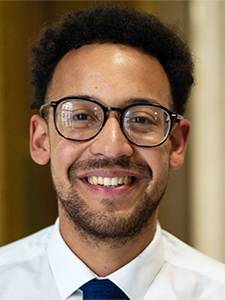 David Gayle
David Gayle

Ancient World 2015-18
Analyst, Bank of England
Ancient World is a holistic and interdisciplinary major which encompasses a variety of topics and offers training in multiple skills. During my time at UCL I enjoyed having the freedom and flexibility to pick up courses from several subject areas, something which is crucial to understanding wider ideas and is a useful antidote to academic tunnel vision. Since having graduated in 2018, I now work as an analyst for the Bank of England, and did not previously imagine how far my undergraduate programme would benefit me in the corporate setting. Many organisations are keen to recruit graduates with unconventional or unique skillsets who may be able to offer countervailing viewpoints driven by studies in the humanities. In my sector, many graduates hold quantitative backgrounds, but I also find that graduates with an understanding of the humanities (however broad) are often welcomed to contribute to work which is enriched by diversity of thought. The wide scope of the Ancient World programme has meant that I am able to synthesise ideas from varying disciplines with speed and maturity, a skill which is as vital as it is rare.
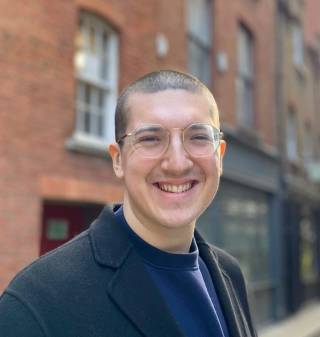 Dominic Hauschild
Dominic Hauschild

Ancient World 2013-16
Political Communications
I studied Ancient World at UCL from 2013 to 2016, and I was President of the UCL Classics Society for the 2016/17 term.
I currently work at the House of Commons, where I handle media enquiries and advise on communication strategies for Labour MPs and members of the Shadow Cabinet. I am also on the Committee for the Labour Campaign for Human Rights, and have advised on political engagement for campaigns including People's Vote, and a campaign of people bereaved by Covid-19 who are trying to hold the government to account.
Studying Ancient World at UCL taught me how to interpret the often hidden meaning of various sources, which has been invaluable in my work as I often have to draw out messaging from a complex corporate narrative. Additionally, the flexibility built in to the Ancient World programme let me study a range of subjects both in the Greek and Latin Department and outside it.
Of course, the original political communicators were the ones who inhabited the ancient world, and studying at UCL armed me with the experience of the past as I try to help my clients navigate the current political climate.
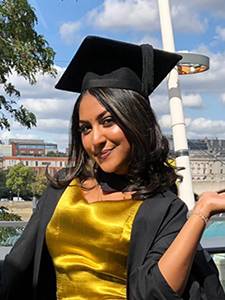 Sabah Hussain
Sabah Hussain

Ancient World with Study Abroad 2015-19
MA in Investigative Journalism
The real question is, why wouldn’t you do a study abroad degree? My Erasmus year in Bologna, Italy, was a year of fantastic food and travel, time for self-development, and an opportunity to explore other academic interests alongside Classics. I met people I never would have met without the Erasmus year, and also improved my Italian, which is a skill I’ll now have for life.
It can be a challenging year. It’s a long period away from home, and it’s a year adjusting to different models of thought that you might not be used to. But this isn’t a bad thing. I’m currently doing a Master’s in Investigative Journalism; when you get those tricky questions like ‘What challenges have you overcome and how?’, or ‘What have you done that you’ve been proud of?’ your study abroad will give you pre-packaged answers to use, as I know first-hand from interviews I’ve had, including those for my MA.
A year away from the conventional 3-year course allows you to come back to your final year refreshed, with a new perspective of your academic studies. I know that I performed much better in my final year after the year abroad than I would have if I’d hadn’t had the Erasmus year.
A degree with study abroad will only widen your potential and prospects. Employers love it, and it’s low-key impressive whenever you mention it. I really couldn’t recommend it more.
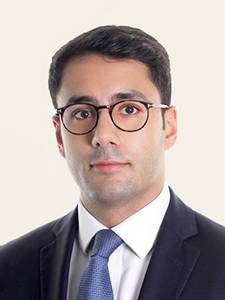 Ravi Jackson
Ravi Jackson

Classics 2012-15
Barrister at 3 Verulam Buildings, London
I studied Classics at UCL from 2012-2015, specialising in Greek literature and philosophy and Latin linguistics, before following the well-trodden path to law. I really enjoyed my time at the Department. The modules are varied and well-taught, and the lecturers generous with their time. Because the Department has a comparatively small student body, unlike some other departments, there is a real sense of community. Professionally, the skills I obtained while studying – the ability to forensically analyse complex information, to deconstruct linguistics and rhetoric, and to argue a point of view – have been invaluable. From a personal perspective, it was enriching to study a creative and expansive subject, before settling on a specific career path. Classics at UCL was a great choice.
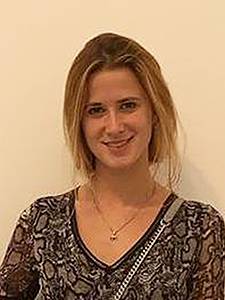 Carolina Mostert
Carolina Mostert

BA Classics, 2010-13
Specialist Writer and Project Manager, Sotheby’s
As a Specialist Writer and Project Manager at Sotheby’s, London, my role is to put artworks into words and communicate the financial value of things layered with beauty and meaning. Translation is at the core of what I do every day. I learn about objects through their history and place in the world, much like words in a foreign text; I interpret them and convey their current worth.
I developed these lateral skills as an undergraduate Classics student. To not have a straightforward career path set in front of me was a strength of this degree. Sotheby’s wasn't the destination since the beginning, but from my current standpoint, Classics is where my journey started and also what enabled it. The range of courses offered by the department at UCL and the vision of my tutors meant that I could tailor my studies to what interested me, whilst being guided in this discovery. I graduated from UCL with a passion for my research and confident that this would serve me well, whatever I did next.
After my Classics degree, I did an MPhil in European Literature at the University of Cambridge. My MPhil thesis built on my BA Classics knowledge, and helped me earn a Courtauld scholarship to study Italian Renaissance art. Upon graduating from the Courtauld Institute of Art, three years after leaving UCL, I reflected: whilst studying in England, I only got closer to the culture of my motherland, Italy. Studying Classics at UCL was the first step on this adventure, enriching in ways beyond academia, and perhaps the most important one.
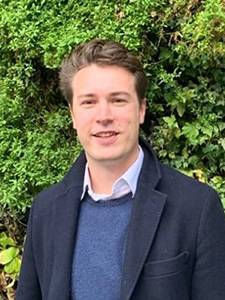 Freddie Theobald
Freddie Theobald

Classics 2011-14
Accounting and finance (Tax) at Deloitte – Transactions (Real Estate)
I studied Classics at UCL between 2011 and 2014. Like many other people, I had no real inclination as to what career or path in life I’d pursue upon graduating. Throughout my time with the faculty, my strengths lay primarily in classical language and linguistics, but I had been drawn to the programme by the rich diversity of other fields and disciplines that a degree in Classics provides.
There are few other courses that can take you on a daily journey from history to romantic poetry, philosophy to linguistics, from palaeography to dramatic theatre. By being exposed to and being granted so much freedom in choosing from so many subjects, not only is there no danger of becoming disinterested during your studies, but you are placed in the perfect environment to nurture a deep pool of skills and capabilities that potentially no other course has to offer.
Whilst a career in accounting and finance doesn’t always seem like the most obvious (or feasible) next step to some people following a degree in Classics, you’d soon find that all the skills you develop are not only readily transferable but are fundamental: the ability to apply a rigorous, forensic scrutiny to a text to draw out its essential and true meaning; a proficiency in writing and language to be able to communicate incredibly complex concepts in a simple, digestible manner; an ability to break intricate problems into their constituent parts so that they can be solved with speed and accuracy. Most importantly though, you’ll find that you are, inevitably, the most interesting person in the room at any corporate event…
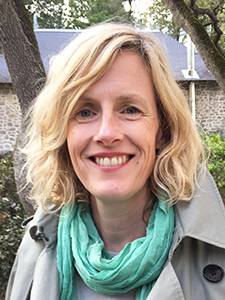 Claire Weir
Claire Weir

Classics 2011-16 (part-time)
Classics teacher; former barrister
'Classicists make good barristers', according to the standard careers advice. I decided to test whether the reverse was true. I had done the full Bar tour: law degree, pupillage, tenancy, practice, but I decided to take a break from all that and do a part-time Classics' Degree at UCL. I had always wanted to study languages, and wanted to spend time doing something less vocational than law. I had Latin A-Level, but no Greek, and studying part-time allowed me to get my Greek to a good level. Undergraduates were very tolerant of the part-timer in their midst, and it was brilliant. The course was delightfully flexible and broad-ranging; I focused on pure language courses, but also managed to fit in courses in Linguistics, and Mediaeval Latin at UCL, and Reception Studies at Kings. A course in Linear B at UCL sparked an interest in ancient scripts, and took me to SOAS to study Akkadian. I loved the hardcore language stuff but perhaps the most rewarding thing I did during the course was to teach Latin to Year 5 pupils as part of the Iris Project. Classics has now completely replaced the Bar. I spend my time trying to understand cuneiform on clay tablets thousands of years old as part of an MA at SOAS, and teaching Greek and Latin to the choristers at Westminster Abbey Choir School.
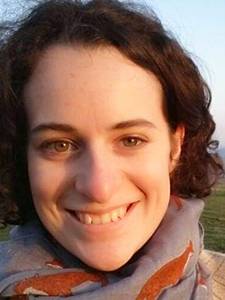 Emma Yeomans
Emma Yeomans

Classics 2015-18
Journalist at The Times
In the year after graduating from UCL, I've found myself breaking windows, interviewing politicians, exploring all parts of Britain and digging through databases in hunt of stories. I was lucky enough to land a place on The Times graduate trainee scheme for news reporters, and got thrown into the delightfully varied world of newspaper journalism. I've since written stories on share prices, immigration, the weather, Donald Trump and even, on one particularly unexpected day, dominatrices. Thankfully Latin taught me how to pluralise that.
One of the things that makes Classics unique as a subject is that it's not a single topic or skill. It's not just a language course, nor is it just history, literature, politics or art. It's all of them. Being able to pick up a topic I'm not familiar with and make sense of it is a core skill in this industry, so a Classics degree, which trains you to think across multiple disciplines at once, is exceptionally useful. The UCL Classics department excelled at encouraging us to be broad and creative in our studies, particularly when it came to dissertations: I wound up writing about Tacitus's influence on Nazism. We learned to think about the connections formed both within the ancient world, and from it to our own. Now, whenever a story with an investigative angle comes across my desk, I get to use that same process of searching, analysing and joining up dots. Coming from the state school system, it was also only through a classical education that I ever learned formal grammar, which is rather useful for a professional writer.
Classics is a great subject for any would-be journalist; and the same is true vice versa. This is a fantastically fun industry to be in for anyone who enjoys the challenges of a Classics degree. But I'm still waiting for the perfect Classical story to present itself. If I can get Virgil or Tacitus in the paper one day, I'll be delighted.
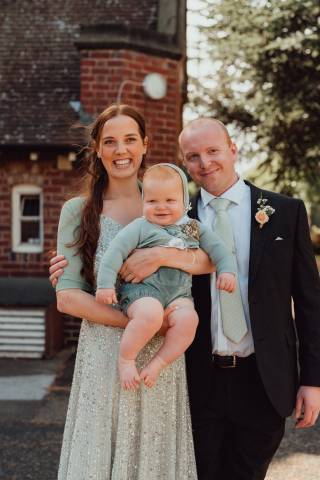 Oliver Clamp
Oliver Clamp

Classics 2016-2019EU Project Manager
MSc Computer Science
Over three happy years at UCL I tried to make the most of the incredible breadth Classics has to offer, with the memory of my final year a heady mixture of Catilinarian conspiracy, Platonic dialogues and Greek tragedy.
I am currently working as a Project Manager for Shift2Rail, a European R&D programme that brings together partners from all over the continent. I have recently been working on the development of a multimodal transport app for passengers in Europe, with the vision of joining up transport options in all four corners of the continent. Additionally, I will soon be completing an MSc in Computer Science at Birkbeck, with a view to moving into software engineering once I graduate. At first glance, the crossover between Classics and Computer Science may seem slim. In reality, the rigour of a Classics degree (particularly the philosophical and linguistic branches of the subject) has given me the grounding to think logically and with the instinctive eye for syntax that is drilled into every classicist who leaves UCL. I will always look back on my time at UCL with great fondness and will always be grateful for the many ways it has enriched my life.
 Close
Close

